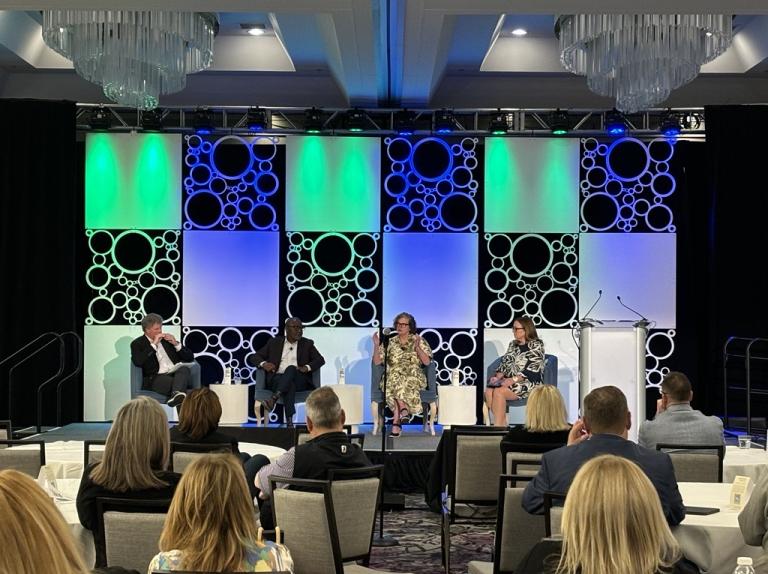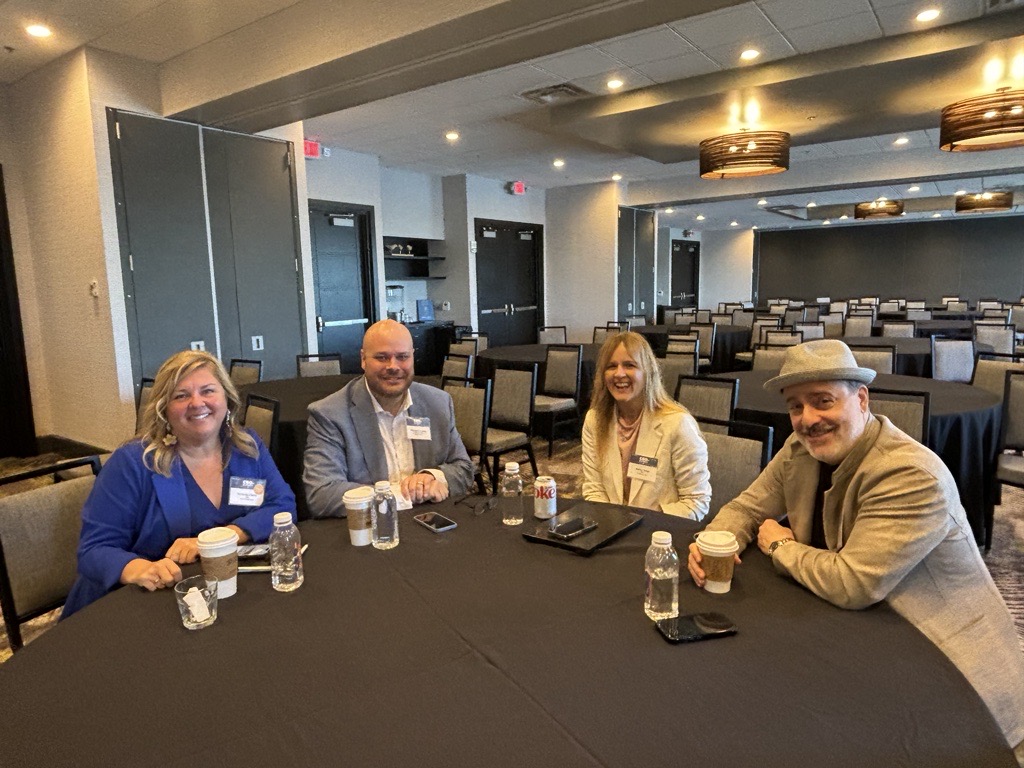
First-time attendees of the 2025 DI CEO Summit share bold insights on leadership, resilience, and community impact. Their reflections challenge traditional DMO roles and emphasize stewardship, stakeholder alignment, and values-based strategy—critical shifts for destination leaders navigating a rapidly changing world.
As the tourism industry continues to evolve in complexity and influence, leadership at the destination level has never been more critical. At the 2025 Destinations International (DI) CEO Summit, held in the vibrant city of Savannah, GA, first-time attendees brought fresh eyes and sharp perspectives to the conversations. But their reflections go far beyond mere event recaps—they offer valuable leadership insights for any CEO navigating the shifting dynamics of community engagement, crisis preparedness, and organizational transformation.
Below are key takeaways that reflect broader themes of strategic leadership, drawn from interviews with three first-time attendees.
1. Reimagining Leadership as Community Stewardship
One of the most resonant themes from the summit was the idea that destination leaders are not just tourism promoters—they are stewards of their communities.
“Part of the work of a destination is to become a community shared value. It’s about finding value in actions beyond hotel nights and visitor spending. The opportunity is to create the experiences that ensure our communities are places where people want to live, work, visit, and invest.” David Naczycz, Coraggio Group
This expands the role of DMOs (Destination Marketing Organizations) far beyond marketing, positioning them as vital contributors to the social and economic fabric of their cities.
Jeffrey Church, President & CEO of Visit Berkeley, echoed this sentiment.
“Our organizations can be the glue that brings together public-private partnerships. It’s not just tourism—it’s about economic development, education, and social equity.” Jeffrey Church, President & CEO, Visit Berkeley
For CEOs across industries, this shift in identity—from service provider to civic leader—requires a recalibration of both mission and messaging. Leaders must demonstrate their organizations’ value in ways that resonate with broader community priorities.
2. Build “Fans,” Not Just Followers
A standout session for many was the keynote by Jared Orton, President of the Savannah Bananas, whose “Fans First” approach provided an energizing look at brand loyalty and organizational culture.
“His failures and successes resonated with me. As destination leaders, we can all learn from how his team reinvented their business and put the customer— or fan—at the center of everything.” Yuliana Garcia, Executive Director, Visit Camarillo
Church summed it up succinctly: “Be intentional in loving who you serve more than loving your product. That’s how you build lasting impact.”
This philosophy challenges CEOs to humanize their organizations, infuse their cultures with empathy, and think creatively about how they connect with their audiences. Whether you're selling tourism, technology, or training, the principle remains: people want to feel seen, heard, and valued.

3. Turn Crisis Into a Strategic Advantage
Preparation emerged as a critical differentiator between reactive and resilient leadership.
Garcia shared: “You must provide stability and direction as the leader of your organization, and you must lead with empathy. When recovery takes time, leveraging tourism in that recovery and staying focused on the long-term plan is what sets you up for success.”
Naczycz added that many CEOs he spoke with were struggling to prove their value to stakeholders despite strong data. “Even when DMOs had economic impact data, it wasn’t enough. We need to get better at making the case for investment and support—especially in the face of crisis.”
The takeaway for leaders is two-fold: first, crisis planning is non-negotiable; and second, communication with stakeholders must evolve from data reporting to storytelling and strategic advocacy.
4. Bridge the Gap Between Institutions and Community
One compelling insight came from a session titled Beyond the Mainstage, focused on how destinations can leverage sports, film, and festivals for broader impact. Church, who leads a collegiate town, was especially drawn to the idea of bridging “Town and Gown” dynamics.
“Having a DMO liaison between the city and college campuses supports not only tourism but also revenue generation and community alignment,” he noted.
This underscores the importance of thinking beyond traditional verticals. For CEOs, building bridges between disparate groups—public agencies, educational institutions, private enterprise—can unlock new synergies and long-term resilience.
5. Prioritize Purpose—and People
Several speakers reminded attendees that success is not just professional—it's deeply personal. Naczycz was particularly moved by Milton Segarra’s presentation. “What I took away from that is it’s important to know what is really important in your life and keep that as your top priority. You never know what life is going to throw at you.”
That level of vulnerability and introspection is often missing from leadership conferences, but it struck a chord. In a time when burnout is high and public scrutiny intense, CEOs must stay grounded in purpose—not just for their organizations, but for themselves.

Final Reflections: A Summit of Substance
While the city of Savannah offered beauty and charm, it was the richness of the dialogue and the generosity of ideas that made the 2025 CEO Summit unforgettable for these first-time attendees.
Garcia concluded: “The small, intimate settings allowed for meaningful conversations. I’ve made connections that will last well beyond the summit.”
Church left feeling “reenergized and committed to being a steward for my community,” and Naczycz shared that he plans to evolve his firm's offerings to help DMOs become the community-valued entities Jack Johnson envisioned.
For any CEO—whether leading a DMO, a nonprofit, or a multinational company—these reflections offer a powerful reminder: true leadership is about connection, community, and courage in the face of change.
Submit Your Thought Leadership

Share your thought leadership with the Destinations International team! Learn how to submit a case study, blog or other piece of content to DI.



